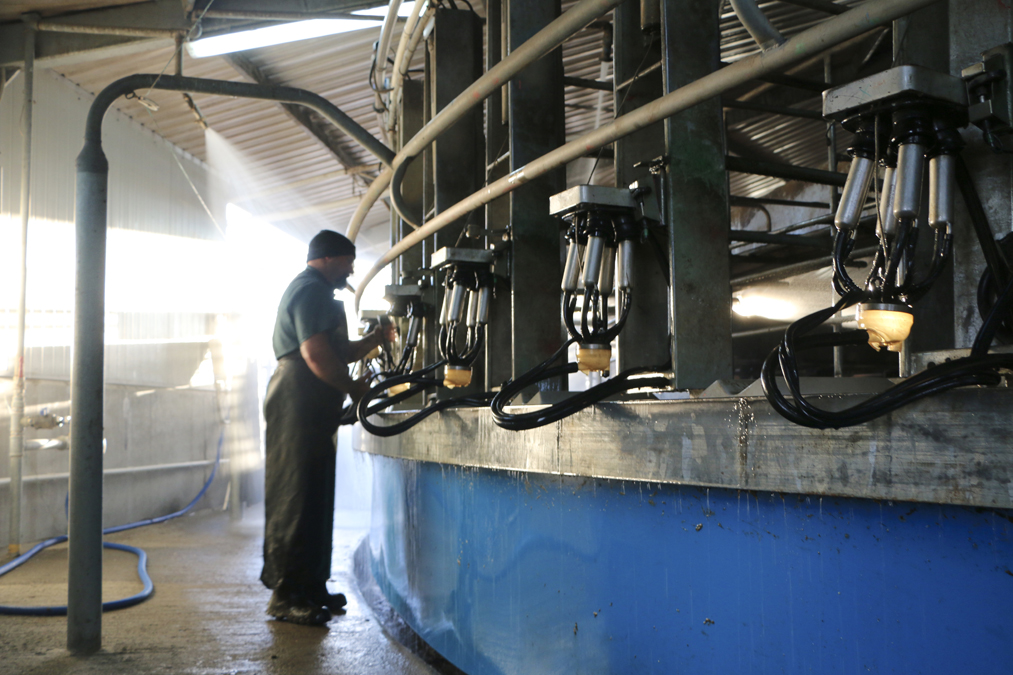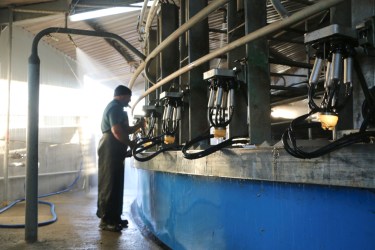As we are all too aware, the farming industry is facing ongoing labour challenges. Recruiting high-calibre people has always been difficult, and there are no signs of this getting any easier. For that reason, it’s vital to hire and retain the good people you employ, particularly in the key roles, and to give them reason to enjoy the work that they do. In the first of an occasional series focussing on employment, we look at steps you can take to ensure you find the right people.
Recruiting should be planned carefully
Like all well-run companies, modern farm businesses should have well-documented processes in place for different parts of their operations. These should include long-term plans relating to the overall business, operations, succession, equipment maintenance, and so on.
Also, there should be a thorough employment-management plan, covering policies to do with recruitment, employment terms, reviews, disciplinary and grievance procedures, and more.
Good recruiting will mitigate your costs
Recruiting can be an expensive business. Obviously, this includes the direct costs of writing your job description, advertising, interviewing, and hiring. However, it also includes costs implied by the fact that a recruit will be less productive for a time as they get used to their new job, work processes and management systems.
Not only this, but adding a new team member can affect the dynamics and efficiency of the whole team, at least until the new person is bedded in. This can become obvious, and damaging, if you hire the wrong person.
Even if you find the right person, they perform at only 25% of their potential in the first month and can take up to five months to achieve full productivity, according to studies. This inefficiency will be much higher if you get the wrong recruit.
Create a clear job description
To give yourself the best chance of attracting the right candidates, write a clear job description. This will help you to stand out from other employers.
You should include:
- The job’s title
- Job summary
- Responsibilities and duties
- Role and tasks
- Qualifications and skills
- Salary and benefits
- Request references
For fuller details, you can refer to this helpful guide.
Finally, make sure that you advertise your vacant position in the right place. Make use of the farming press, and modern employment sites, including Agricultural & Farming Jobs, Reed, and Indeed.
Prepare for your interviews
You expect your candidates to have prepared for their interview, and you should do the same. Get ready for each interview by reading the applications and any accompanying documents provided by your candidates. Give adequate time for your interviews, and conduct them in a place without distraction, and at a time that you will not be interrupted.
Prepare any questions for your candidate before the interview, and write them down. Use the candidate’s application as a prompt for more information.
Also, consider making a checklist of the knowledge and experience that you’d expect your candidate to demonstrate as you interview them. When they mention those things you can tick them off. This makes appraising your candidates easier later on
At the outset, make sure you put your candidate at their ease, and make some small talk to ensure that your candidate feels comfortable. Tell them about your organisation and outline the position that they have applied for.
Keep your questions focused
Be aware that if you ask personal questions then they should only be peripheral, and formal. Avoid questions that are centred on a candidate’s gender, ethnicity, skin colour, age, country of origin, marital status, religion, and family status.
There’s a fuller guide to interview techniques on the Indeed website.
Have an assistant help you to interview
You may even consider getting a key staff member to assist you at the interview. They could help you by explaining the role, and you could get them to ask some of the questions. However, be sure to brief your co-interviewer on the importance of the types of questions they ask, and what they should avoid asking.
After each interview take time to discuss how it went with your assistant. This will give you both a strong sense of whether your candidate will fit your team, and your business.
Of course, you can never be sure that they will fit, but with careful selection, you can give yourself a good chance that they will.
Take notes
As you interview, write down important points that your conversation raises. Note your candidate’s responses to your prepared questions, so that you can be sure they demonstrate the knowledge and experience that you are looking for.
Make sure you refer to your notes soon after your interview, so that you can make sense of them. Annotate and add detail to them when you review. Write them up more formally, if necessary, to help you make sense of things when you review all your candidates later in the process.
If you’ve found a few strong candidates, why not invite them along to come and have a look around your business and meet other members of your team. You can then see them in a different setting and gain more of a sense of what they are like, outside of the formal interview.
Seek references
So, you’ve found your preferred candidate, but are the things they told you accurate? The best way to determine this is by checking their references, which you should require as part of their application.
Of course, referees tend not to offer too much insight, but they must be fair and accurate, and you will discover if they contradict a candidate’s claims and will highlight if your prospective employee has had any disciplinary issues.
Find out more about references.
Got the right person? Give your recruit a great induction
So, the recruiting process is over, and you’ve appointed your new staff member. Now make sure that they are made to feel welcome. Give them a full and proper induction to the business. This way, they’ll be sure to know as much about work processes, teammates, and expectations as possible. You can make sure they have adequate training to perform their job.
Induction shouldn’t stop at knowing the mechanics of the job, it should include good introductions of the recruit to their teammates. Don’t just do this formally, and at the time when people are performing their work. Try, if possible, to introduce people at a time when work is less busy, and when you can encourage people to talk to each other.
You can even ask people to describe their work roles to each other. It helps the new person to know who they should ask if they need information, and for the established staff to know what the newbie has been employed to do.
You could even consider appointing a buddy, or mentor, to be the key point of contact for the new person. This is a great way for them to get used to the culture of their new working group and can provide a bridge for the group to accept their new member.
Team cohesion is vital. Happier groups tend to stick around. If people enjoy where they are working, and feel valued, they are much less likely to look for other employment. So, make people feel valued from day one.
Need more help?
People management is crucial to the smooth, profitable running of any business. Quite simply, technical improvement cannot be achieved without well trained and engaged staff. Recruiting the right people is an essential part of this process, so it’s crucial that you get it right.
My extensive experience on farms, including my specialisation in people management, allows me to help farmers to achieve the results they are striving for. Please take a look at my work biography for more about me.
If you have any questions at all about how to improve your recruiting or people-management skills, please get in touch, either by phone on 07966 143668 or email Mark.Roue@genusplc.com








